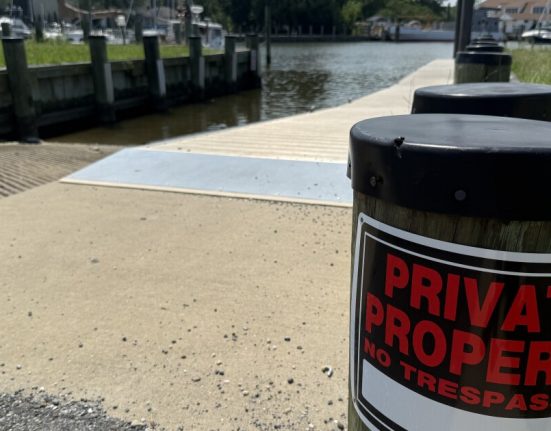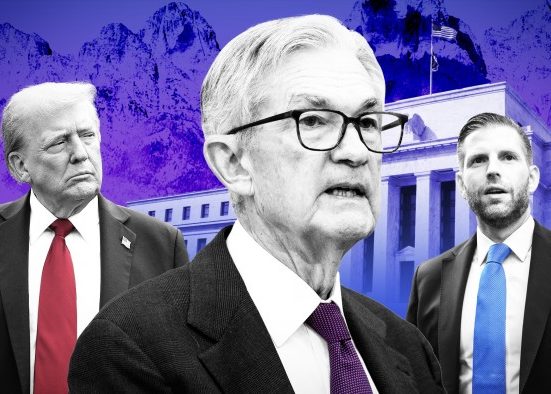For the first 70 days of the President Trump’s administration, sustainable investors have navigated legal and regulatory uncertainty in thematic areas from diversity to climate.
Many institutional investors remain interested in systemic and systematic risks and their potentially destabilizing impacts on investment portfolios. At the same time, a number of these investors are reluctant to take a stand on issues that the Trump administration is rolling back. These investors may benefit from considering the wisdom of two late cultural icons: Bruce Lee and Whitney Houston.
“Be Like Water, My Friend”
Martial arts expert Bruce Lee (1940 – 1973), in a karate stance, early 1970s. (Photo by Archive … More
Drawing from Taoism, Bruce Lee inspires millions toward a mindset of adaptability and flow with the quote “Be formless, shapeless, like water.” According to Taoism, water adapts to situations and overcomes obstacles with ease. Flowing is moving effortlessly without resisting or getting stuck.
Focusing on sustainability issues with broad support across the political spectrum allows investors to mitigate systemic investment risk without elevating legal and regulatory risk.
“I Believe The Children Are Our Future”
LAS VEGAS, NV SEPTEMBER 15: Singer Whitney Houston performing on stage on September 15, 2004 in Las … More
The lyrics of “Greatest Love of All,” the centerpiece of Whitney Houston’s debut album, could be used to make the case for the long-term value of the wellbeing of children: Houston explains that “the children are our future” and urges listeners to “teach them well and let them lead the way, show them all the beauty they possess inside,” and “give them a sense of pride to make it easier.”
Tying Bruce Lee’s and Whitney Houston’s wisdom together, focusing on the wellbeing of children has broad support across the political spectrum. Because combatting unlawful child labor and bolstering child safety and youth mental health online are areas of bipartisan agreement, there is the potential for vast, deep and powerful collaboration among stakeholders. This avoids the risk of navigating thematic areas with changing legal and regulatory boundaries.
Child Labor: A Pervasive Issue With Bipartisan Support
Child Labour – No longer a thing of the past. (Photo by Hulton Archive/Getty Images)
Child labor violations–no longer a thing of the past–were found in all 50 states and in the supply chains of companies ranging from General Mills to General Motors and from Amazon to Berkshire Hathaway. Child labor violations increased 140% in the past decade and 43% year-over-year. To bring these statistics to life with examples, children are cleaning dangerous machinery in factories, handling toxic chemicals, and working exhausting shifts in meat processing plants.
To illustrate the broad opposition to exploiting children, earlier this month, U.S. Senators Cory Booker (D-NJ) and Josh Hawley (R-MO) reintroduced the Preventing Child Labor Exploitation in Federal Contracting Act, which passed out of the U.S. Senate Homeland Security and Governmental Affairs Committee with strong bipartisan support last year. The bill requires prospective federal contractors to disclose their own and their contractors’ child labor violations over the past 3 years, empowers the Secretary of Labor to determine corrective measures for a company to remain eligible for federal contracts, requires the Secretary of Labor to prepare a list of companies that are ineligible for federal contracts for that year based on child labor violations, and increases the penalties for child labor violations.
Child Safety and Youth Mental Health Online
Child safety online remains a critical issue
According to a recent Childlight Global Child Safety Institute Study, over 300 million children a year are victims of online sexual exploitation and abuse in that they have been victims of non-consensual taking, sharing and exposure to sexual images and video in the past year. In addition, 300 million children globally are estimated to have been subject in the past year to online solicitation, such as unwanted sexual talk which can include non-consensual sexting, unwanted sexual questions and unwanted sexual act requests by adults or other youths.
The former Surgeon General Vivek Murthy also issued an advisory in 2023 on social media’s risk to the mental health of children and teenagers because of the ways their brains are affected by the amount of time they spend using it. According to Murthy, “Teens who use social media for more than three hours a day face double the risk of depression and anxiety symptoms, which is particularly concerning given that the average amount of time that kids use social media is 3 1/2 hours a day.”
Child safety and youth mental health online are also areas of bipartisan agreement, with U.S. Senators Marsha Blackburn (R-Tenn.) and Richard Blumenthal (D-Conn.) introducing the Kids Online Safety Act (KOSA) in 2022 to protect children online and hold Big Tech accountable.
Children and Teens’ Online Privacy Protection Act (COPPA 2.0), written by US Senators Ed Markey, (D-Mass.), and Bill Cassidy, (R-La.), would create stronger online privacy protections for anyone under age 17. Both bills were passed by the Senate in July 2024, but failed to advance out of the House of Representatives before the end of the session.
Flowing Like Water To Bipartisan Areas of Sustainability
Flowing like water to bipartisan areas of sustainability
Nonprofits have a duty to their missions, regardless of what would optimize financial outcomes, and many private sector organizations are values-driven as well. Staying true to missions and values in all seasons builds trust.
At the same time, exploiting children in workplaces and online should concern any citizen and any investor. Rooting out unlawful child labor and bolstering child safety and youth mental health online would enhance the sustainability of any portfolio.







